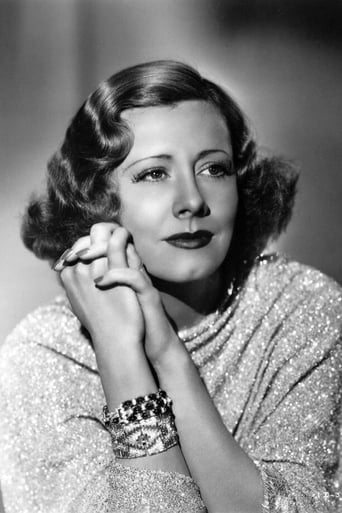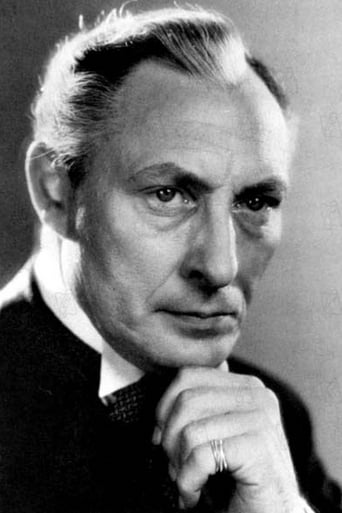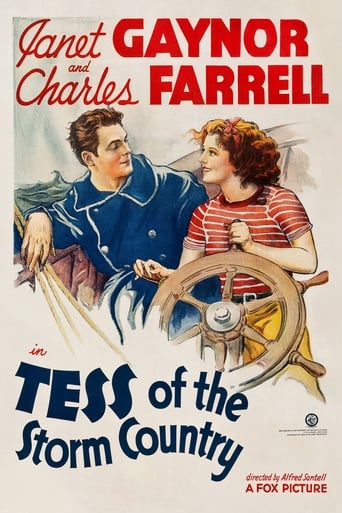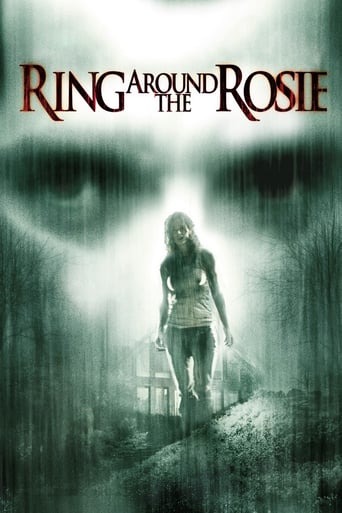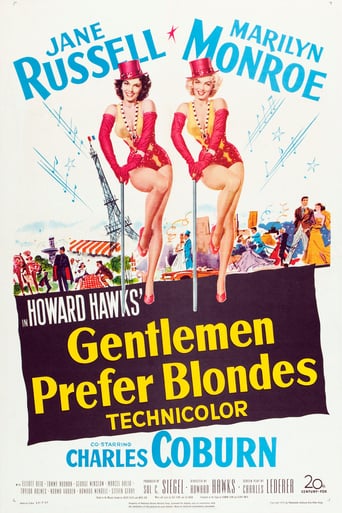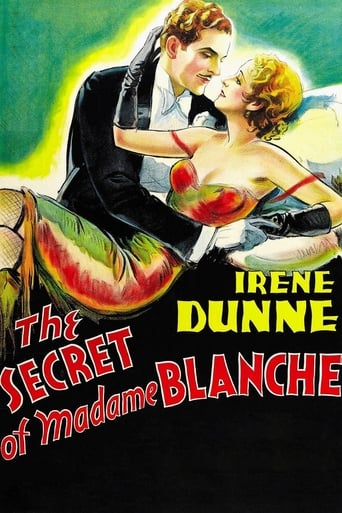

The Secret of Madame Blanche (1933)
A murder trial reunites a former chorus girl and her son, a grandson of an English aristocrat.
Watch Trailer
Cast
Similar titles


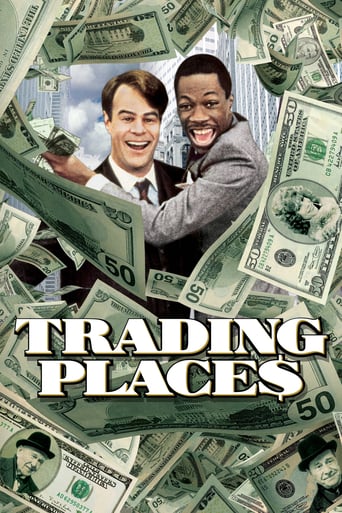

Reviews
Yawn. Poorly Filmed Snooze Fest.
Good movie but grossly overrated
Blistering performances.
The film never slows down or bores, plunging from one harrowing sequence to the next.
Spoilers. Observations.Creepy pop in law. He steals the baby. How dare he? He doesn't know how to raise male children, without spoiling them and making them into total wastrels.Irene Dunne always lovely. Here, she falls for a puny, dorky rich kid, son of the above mentioned stupid idiot. He has no career, and apparently no education. Pop won't give him any more money, so he offs himself and leaves his wife, Irene, to raise the baby as best she can.Irene comes back from performing in a sleazy entertainment spot, finding the grandfatherly slimeball getting custody of her beloved baby boy. Irene goes to grandpa's home to almost beg him to see the baby, but Grandpapa Dearest says no dice.Irene goes on to toil for many years in rathole after rathole, entertaining and becoming what looks sort of like a madam in a brothel, or as she describes later, a restaurant with rooms upstairs.Looks like the young WWI soldier wants to take HER upstairs, but actually he wants a room for himself and his teenage girlfriend who has run away from her parents.More spoilers. Fast forward. Girlfriend goes home. Girlfriend's father comes looking for soldier who stole away his daughter. Dad wants to beat the living stuffing out of soldier. All of a sudden, kerblam. Gunshot. Soldier has gun in his hand, and the father is succumbed on the floor.Girlfriend had given Irene name of soldier. Irene realizes it is her long lost baby son. She tells police she did the deed, and that the soldier got away.Courtroom scene. Irene has confessed to the crime, to protect her son. Judge figures out the connection. Soldier is in the room, and he realizes Irene is his long lost mother, about whom he was told by creepy grandpa that she was no good. Grandpa, Irene's pop in law, is also in room, and cringes/realizes that she was the young woman married to his son against his wishes.Judge says Irene is innocent. Next scene, Irene visits soldier in jail. He didn't get capital punishment or a very long sentence; apparently, the verdict was self-defense, manslaughter or something like that. He only gets around two years.Irene baked him a chocolate cake, but wasn't allowed to bring it into the jail. Her son loves chocolate cake.
It may be difficult to get past the premise of "Madame Blanche": movies always require a suspension of belief to some degree, but I had a very hard time with this one. I can't swallow the idea that Irene Dunne would give up her career to marry Phillip Holmes' snivelling, substance-free, work-allergic wimp of a man, after knowing him for about 8 seconds. Did young people in the 30's really marry so quickly without getting to know their potential spouses?Anyway, Holmes quickly justifies are suspicions. His father disinherits him, so angry is he that Holmes has married so far below his station. Holmes does nothing to make us feel any sympathy for him, but Irene Dunne loves him so! A real unappealingly weak character, he is.The dialogue is so insipid and without drama in the first half of the film that I seriously wondered whether I had the will to see it through.Happily, there is much improvement in the second half. Dunne's soldier-son, played by Douglas Walton, starts off as weak and selfish a person as his father (Holmes) was, but he does grow up and change nicely, and is somewhat appealing. Dunne is fabulous and convincing as an older woman - actually, impressively so - it is hard to recognize her as an attractive younger woman in her "old age" make-up! Lionel Atwill is absolutely evil as Holmes' brutally heartless father. The best scene in the film actually occurs in the first half: look for the close-up, upper-bodies -only shot of Dunne and Holmes in what will be their final parting; the entire shot is beautifully and slightly and softly out of focus, and is quite effective and touching.Overall, this is a mixed bag, but if you love early sound films just for their own sake, or are a fan of Irene Dunne, then you will appreciate this little soap opera.
This is a truly silly film in which Irene Dunne falls in love with Phillpis Homes. She is a performer; so that won't do with his fine family. She thinks she can get his father to reconsider. But we know better: The father is the always scary Lionel Atwill! She's lucky he doesn't mummify her on the pot.The actor who plays her son, many years later, is pallid and odd looking. And the screenwriters (and censors) seem to have forgotten who is related to whom and how at the climax.Dunne is charming but she has a terribly corny plot to work with. She ages well. When she is an older woman, going under the name of the title, she is tougher than usual. Maybe Barbara Stanywck could have done more with this role. But it's pretty doubtful.
Innocent woman meets rich playboy. Innocent woman is seduced by rich playboy. Innocent woman is abandoned by rich playboy. Innocent woman has rich playboy's child. Innocent woman loses rich playboy's child. No-longer-innocent woman ages and prepares to sacrifice all for her child.An entire genre of motion pictures, which often feature Barbara Stanwyck or Lana Turner, has used this basic plot to wring tears from largely female audiences. In "The Secret of Madame Blanche," Irene Dunne takes a turn at this well-worn routine and maintains her dignity throughout, despite the script's attempts to drown her in clichés. In the role of showgirl, Sally Sanders, Dunne has a few opportunities to show off her fine voice, but the musical selections are poor. The relatively short film, which was adapted from a play, lurches forward from hackneyed scene to hackneyed scene and leaves chasms of time for the audience to fill in. Occasionally, patient viewers will be rewarded with dialog and delivery so rich in camp that they will howl helplessly with unintended laughter, although a mouth-to-mouth kiss between mother and son, perhaps common for the period, induces cringes today. While Lionel Atwill is effective as Aubrey St. John, the selfish controlling father, and Philips Holmes is appropriately weak as his son, the rich playboy, the film offers little beyond the incomparable Irene Dunne slumming in a sub-par vehicle. Coincidences abound, French accents come and go, laws benefit the rich and oppress the poor, and a mother's self-sacrificing love conquers all. What more could one ask for? Perhaps Barbara Stanwyck and "Stella Dallas?"
